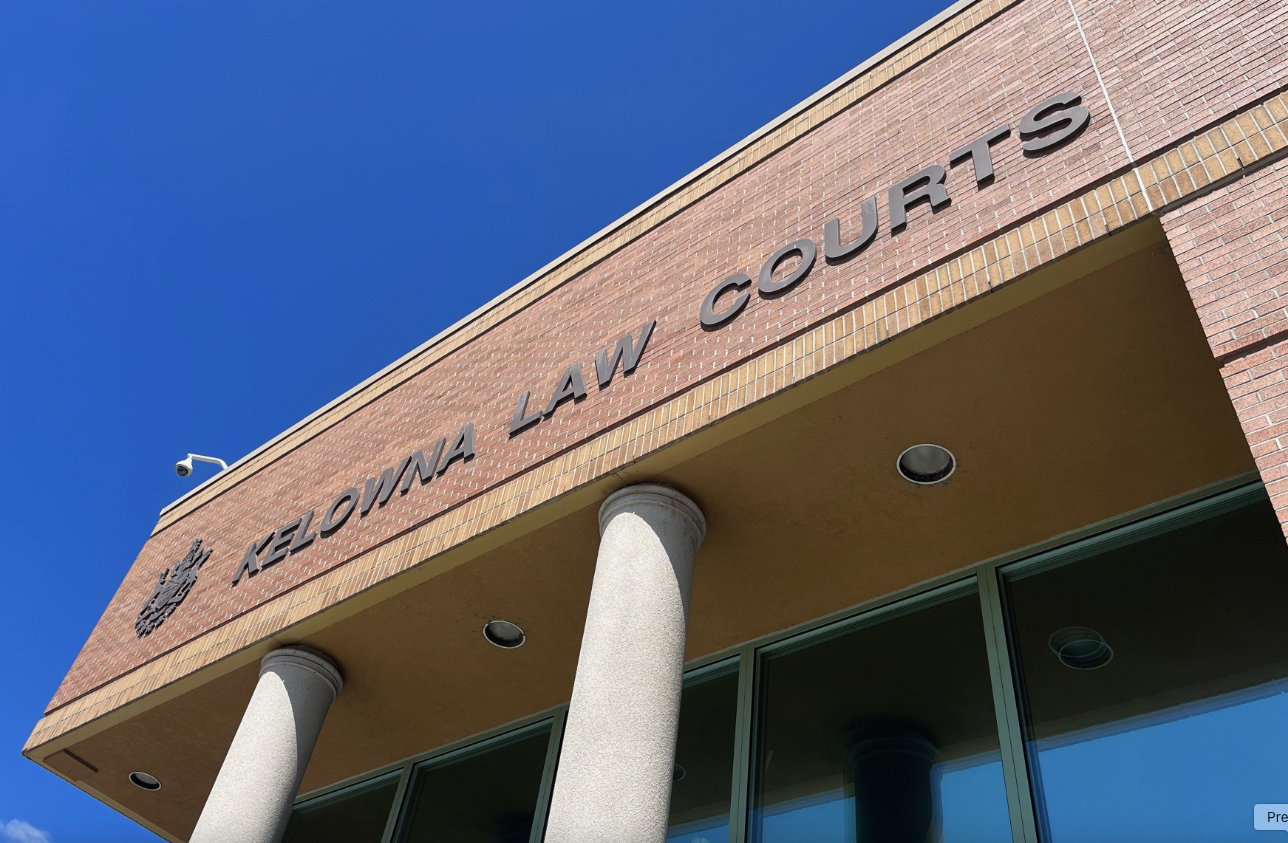Elevate your local knowledge
Sign up for the iNFOnews newsletter today!
Sign up for the iNFOnews newsletter today!
Selecting your primary region ensures you get the stories that matter to you first.

Taking the time to put a piece of tape over a light on the camera so it wouldn’t be seen, Kelowna maintenance worker Tori-Lee Bull Child hid a recording device on a shelf under a change table in the staff washroom at work.
He then placed a paper towel over it to disguise it and pointed it at the toilet.
The camera then recorded his colleagues using the washroom.
On Sept. 22, Bull Child appeared in a Kelowna courtroom having been charged with voyeurism.
The camera remained hidden for less than a week before a staff member at the Kelowna Friendship Society noticed it and called the RCMP.
The hidden camera contained footage of Bull Child setting it up, and together with CCTV footage identified him through his clothes and a tattoo.
He later pleaded guilty to the charge.
The court heard that the camera was found in July 2022 and three videos were found on it. Each recording ran for 45 minutes to an hour and two of the videos captured women using the toilet. A third video ran for 45 minutes but no one entered the washroom.
The victims couldn’t be identified in the videos, but as the camera was in the staff washroom, they were employees of the centre.
Crown prosecutor Brock Bellrichard described it as an “extreme violation of privacy.”
While Bull Child has no criminal record, it is something he’s done before.
In 2018, he was sentenced to a conditional discharge after he was caught at work, having set a camera up in the staff bathroom.
The staff member that found the camera deleted the footage, which made presenting evidence to the court tricky.
“He admitted to it and was very apologetic,’ the Crown said.
Bull Child served 12 months probation without incident, which under the conditional discharge sentence meant he didn’t get a criminal record.
The court heard that the 34-year-old had moved to BC from Lethbridge when he was 10 years old and had since moved back there.
His parents had been survivors of the 60s scoop, and Bull Child had grown up in a home where both his parents were alcoholics and he struggled with their alcohol abuse. He’d also spent years in the foster care system.
In a joint submission to the court, Crown and defence lawyers argued for 12 months house arrest, although Bull Child would still be allowed to go to work.
Bellrichard said he would be asking for jail time if it wasn’t for Bull Child’s Indigenous heritage.
In Canada when sentencing an Indigenous person, judges must take into consideration how the countries colonial history and assimilationist policies have led to alienation, poverty, substance abuse, lower educational achievement, lower rates of employment, and prejudice affecting their lives.
Known in court as Gladue factors, these unique circumstances are to be recognized before a judge passes a sentence.
Regardless of the Gladue factors, Judge Monica McParland was reluctant to accept the sentence.
“How am I in a position to assess whether (house arrest)… would endanger the public?” the judge asked the lawyer. “How am I to assess that when I don’t have any risk assessment?”
While defence lawyer Melissa Lowe pointed out that Bull Child had been incident-free since his arrest, it didn’t sway the judge.
Ultimately, the case was adjourned and a pre-sentence report and psychological assessment will take place, before the judge decides Bull Child’s fate sometime in the future.
News from © iNFOnews.ca, . All rights reserved.
This material may not be published, broadcast, rewritten or redistributed.

This site is protected by reCAPTCHA and the Google Privacy Policy and Terms of Service apply.
Want to share your thoughts, add context, or connect with others in your community?
You must be logged in to post a comment.
One response
Oh good grief How many times do you film people in a place they have a huge expectation of privacy before you get real jail? Not once…. maybe not twice???. Third time or maybe that’s dependent on the level of apology? It’s exactly the same offense and robs people of their sense of privacy. I’m not suggesting a huge sentence but a short sharp shock would sure seem appropriate.